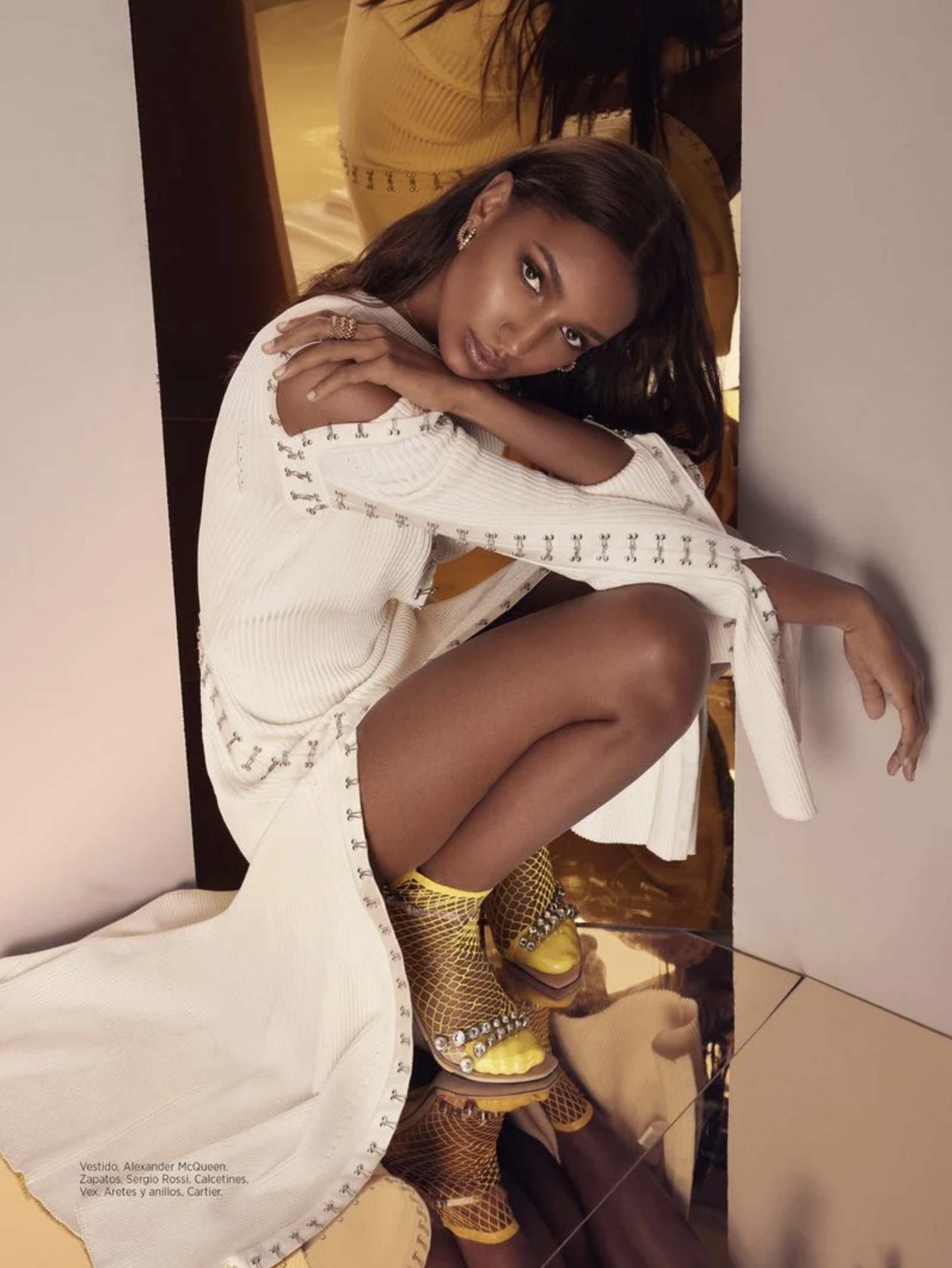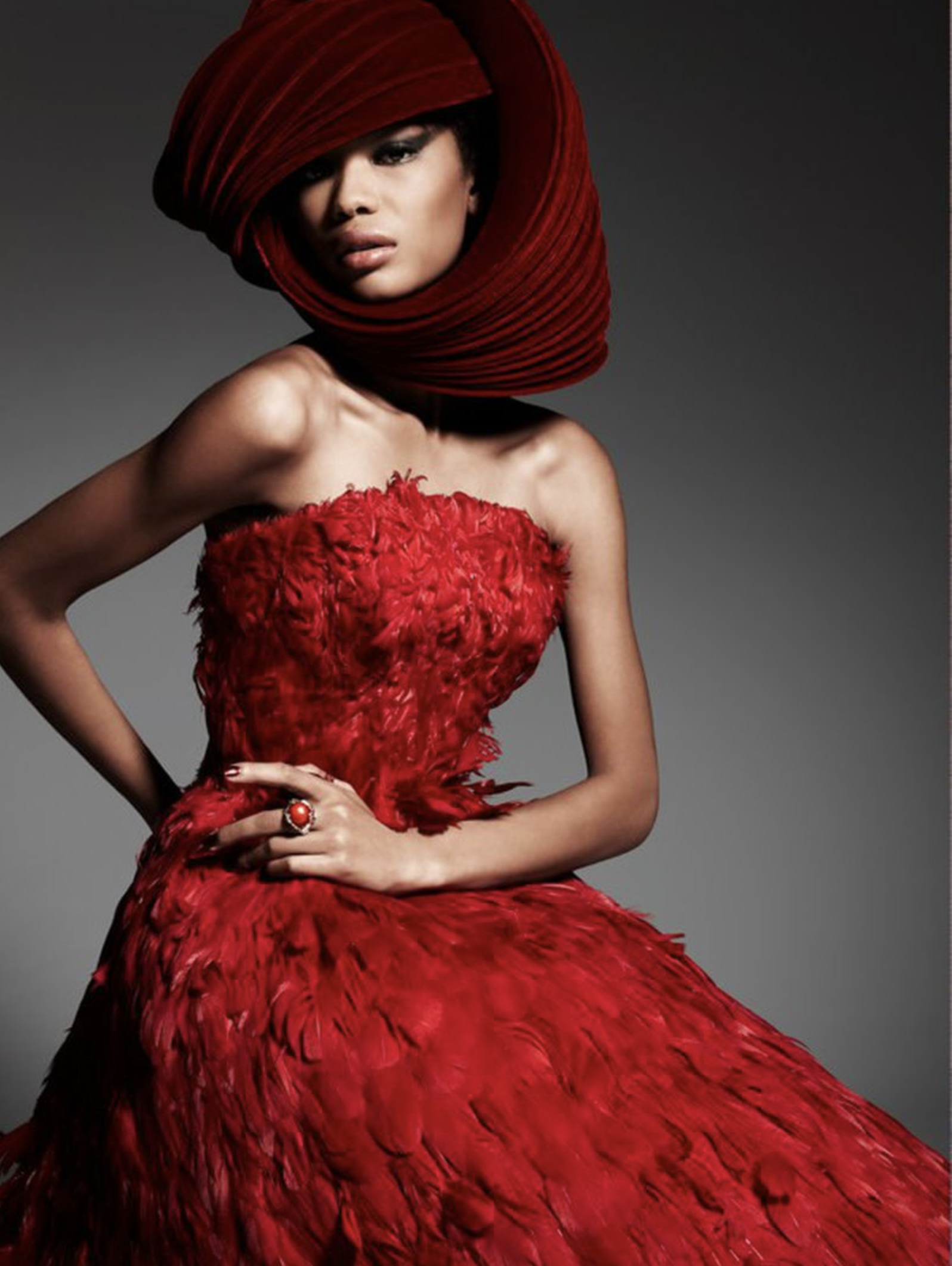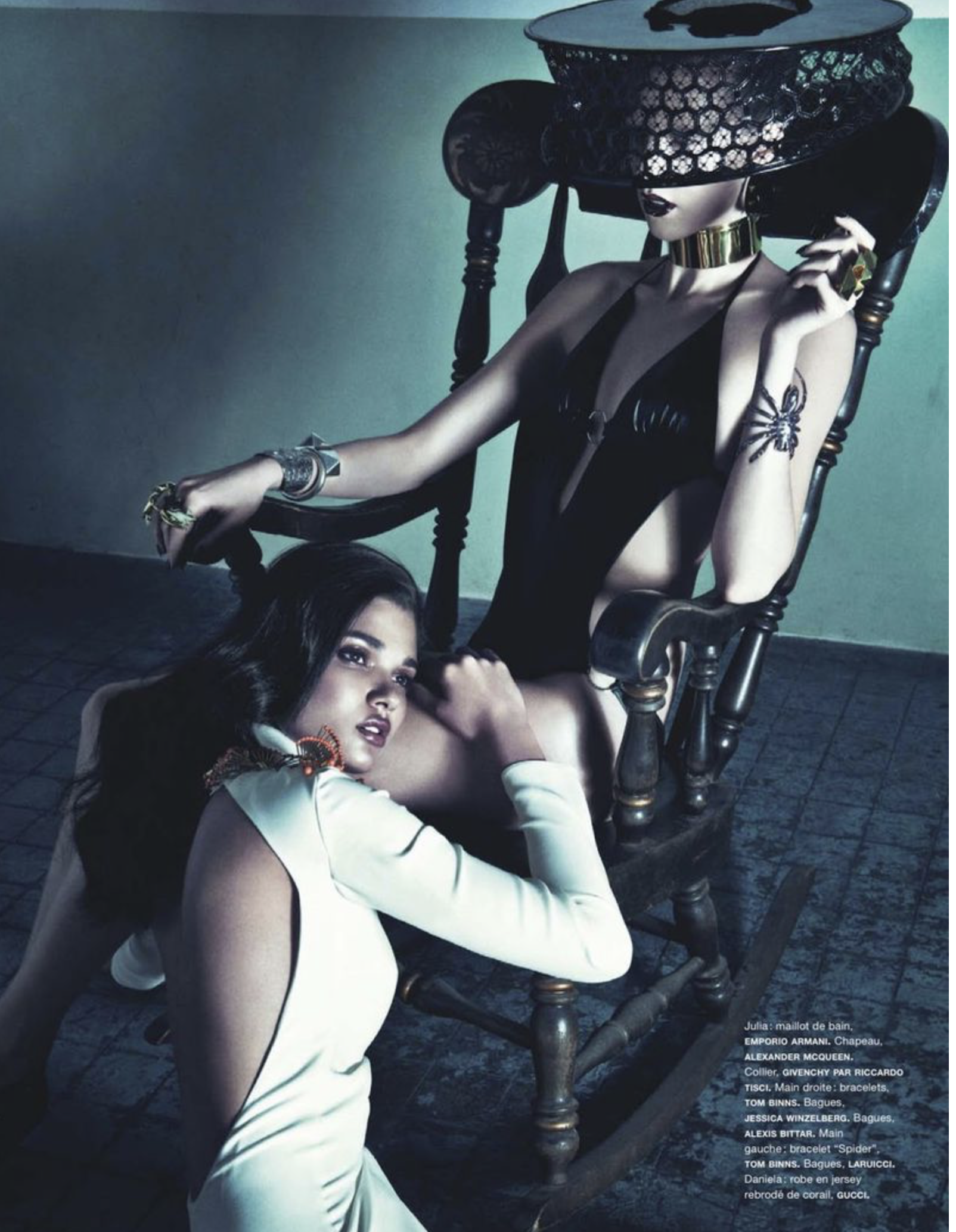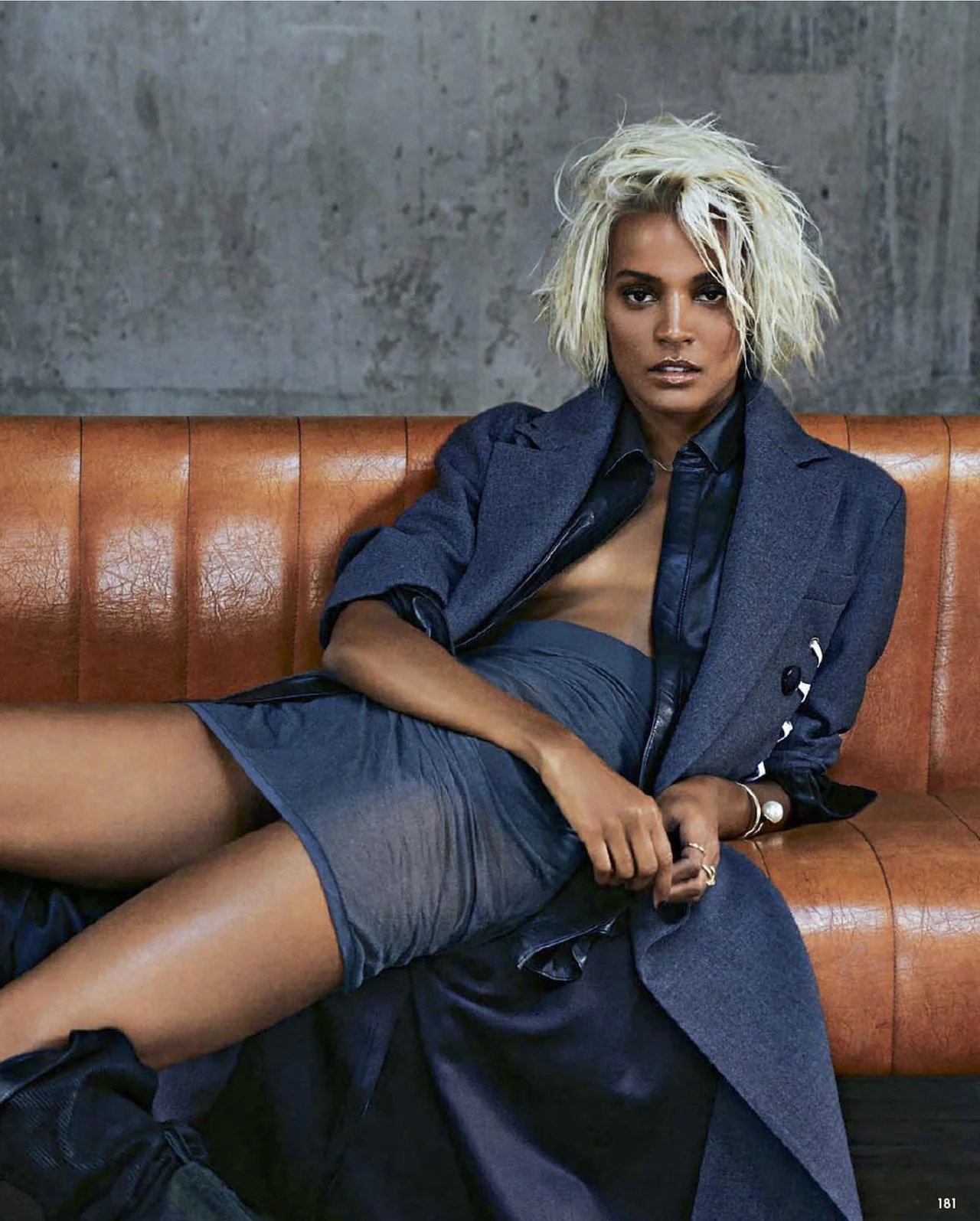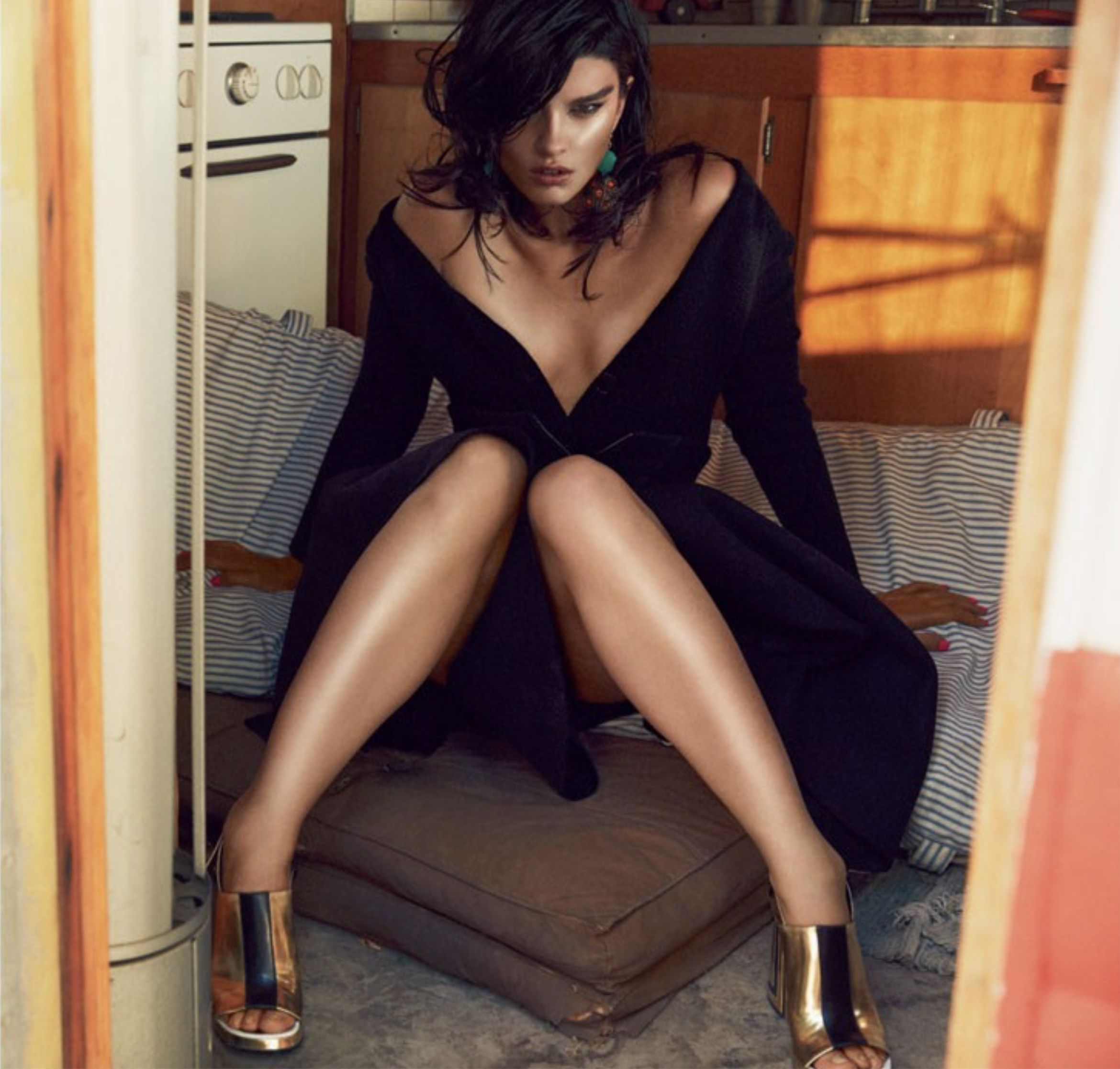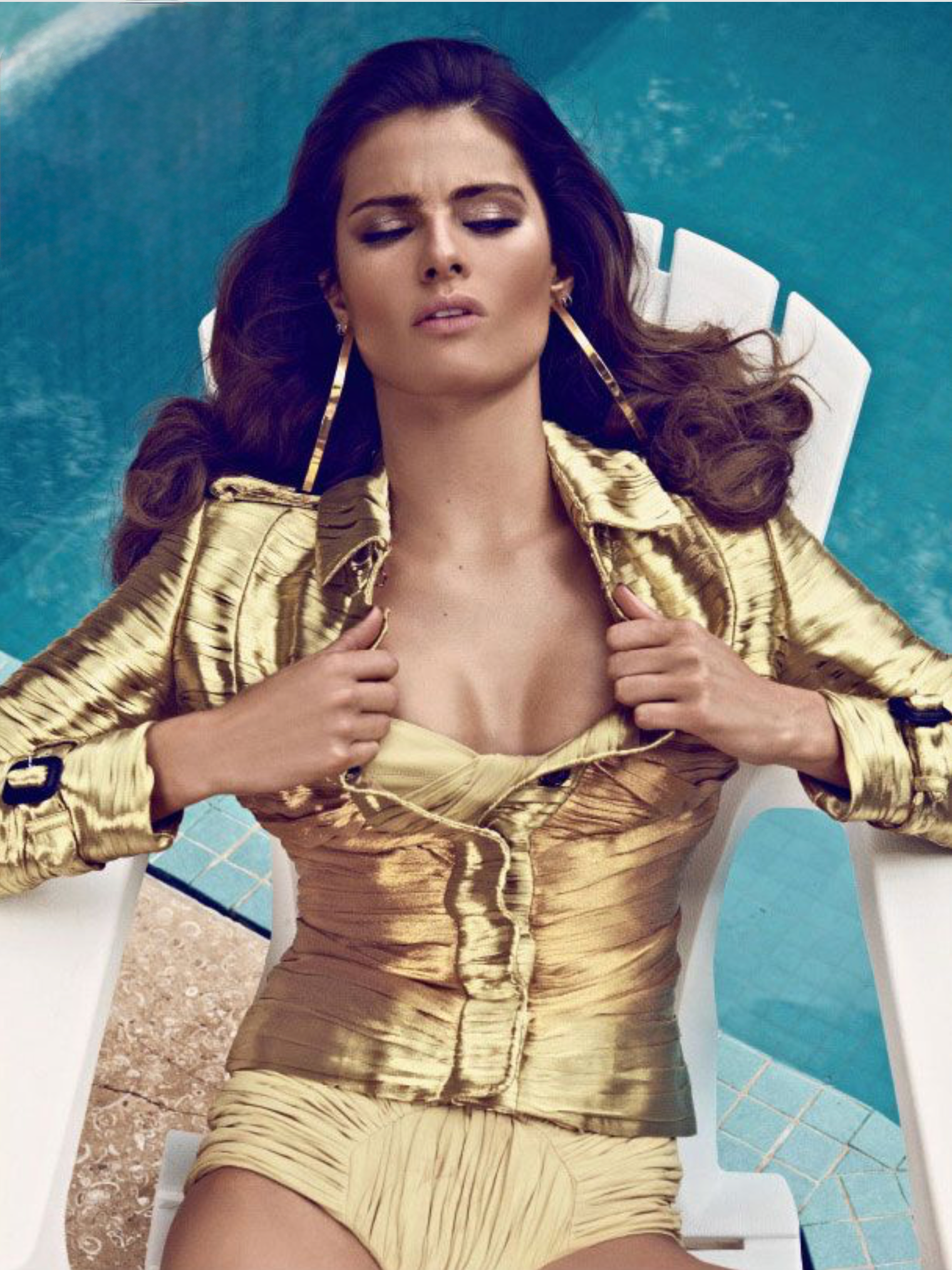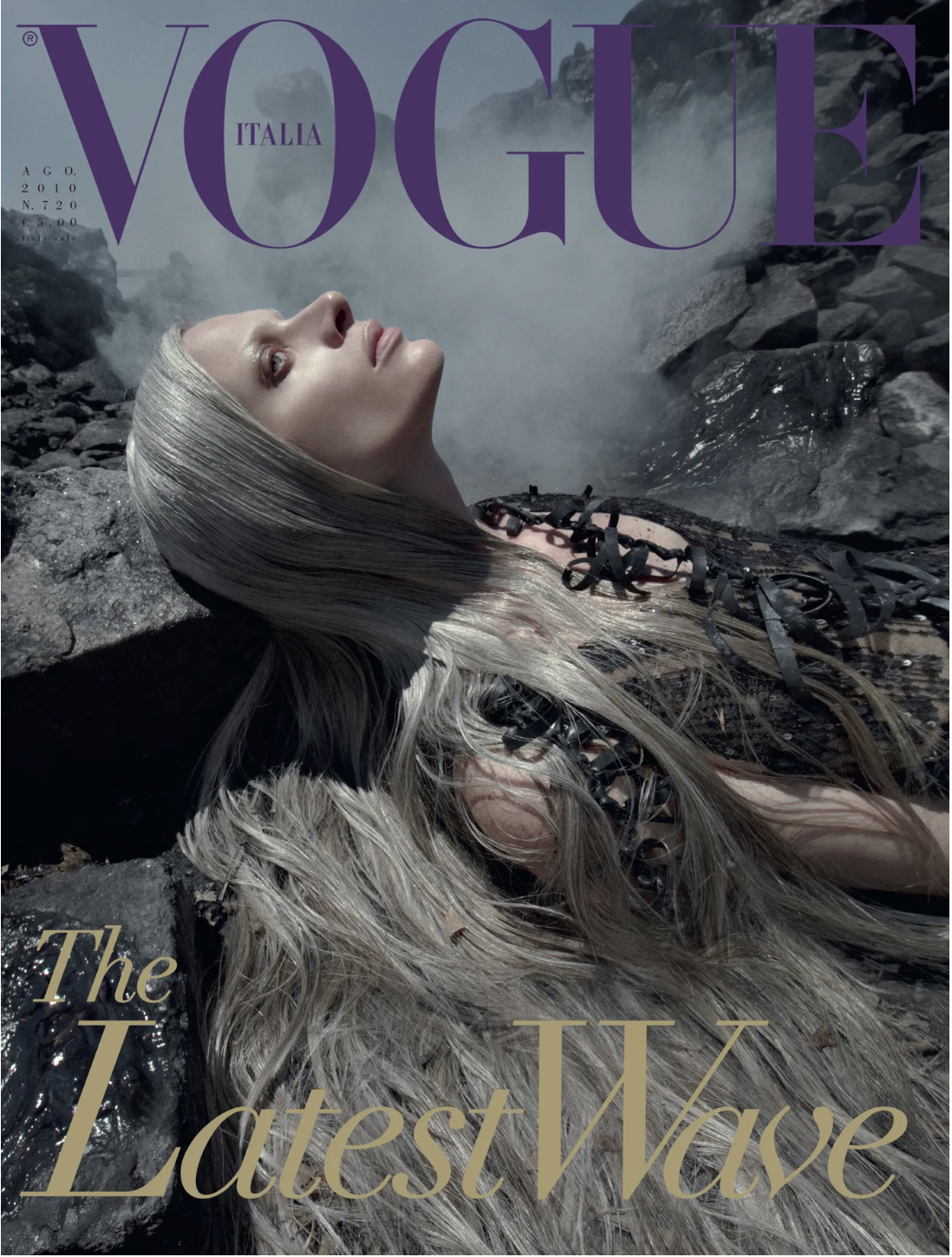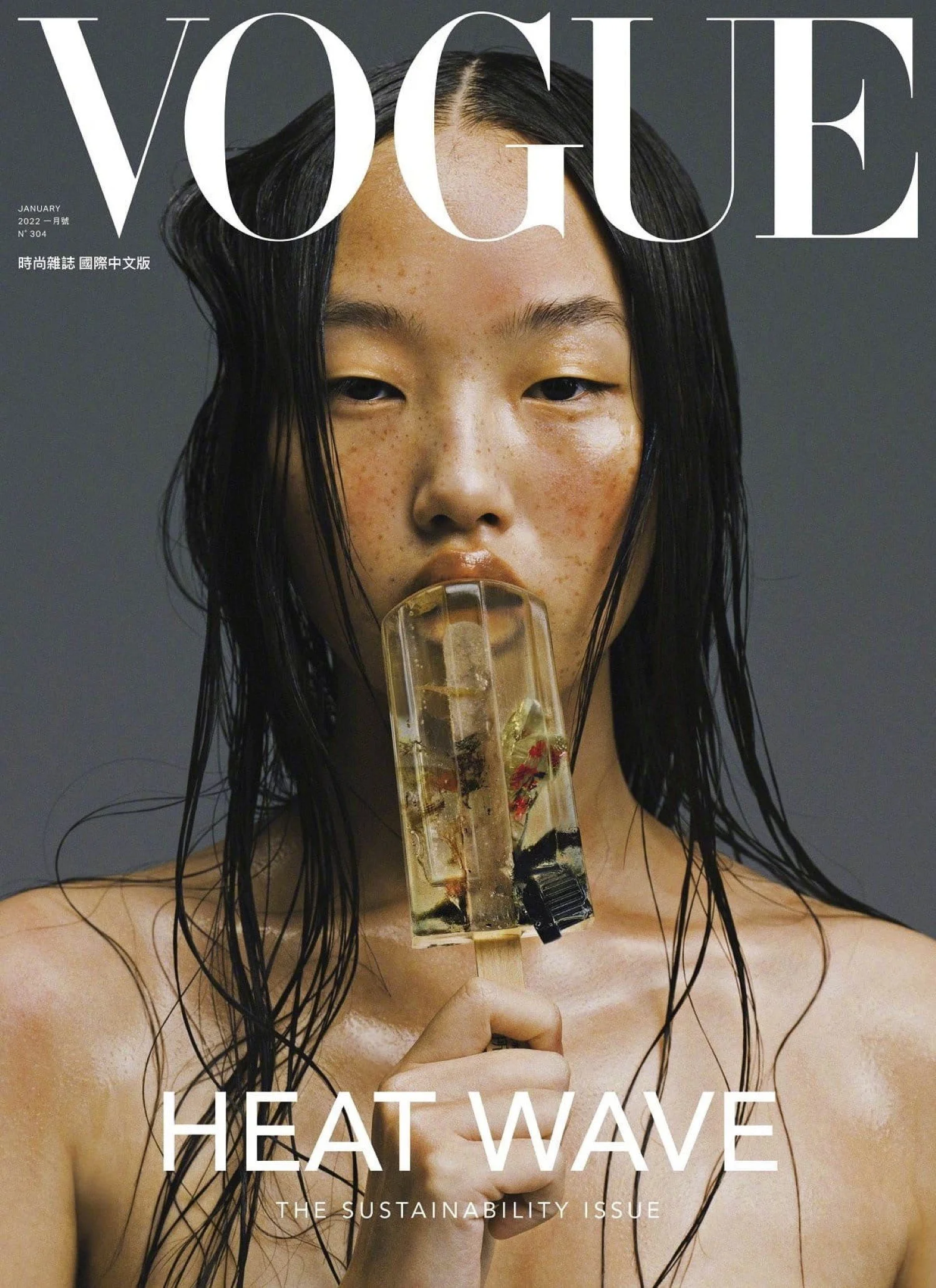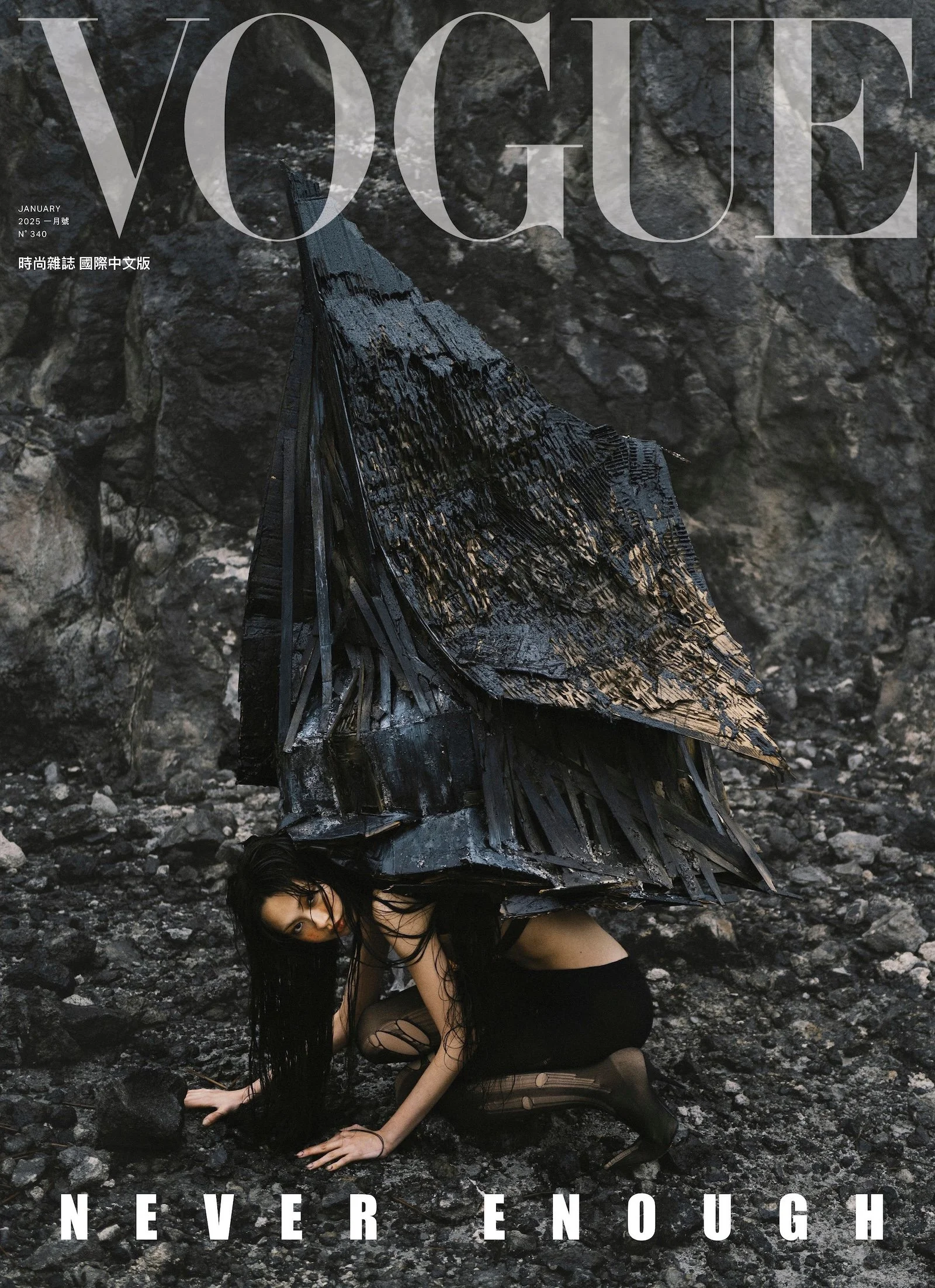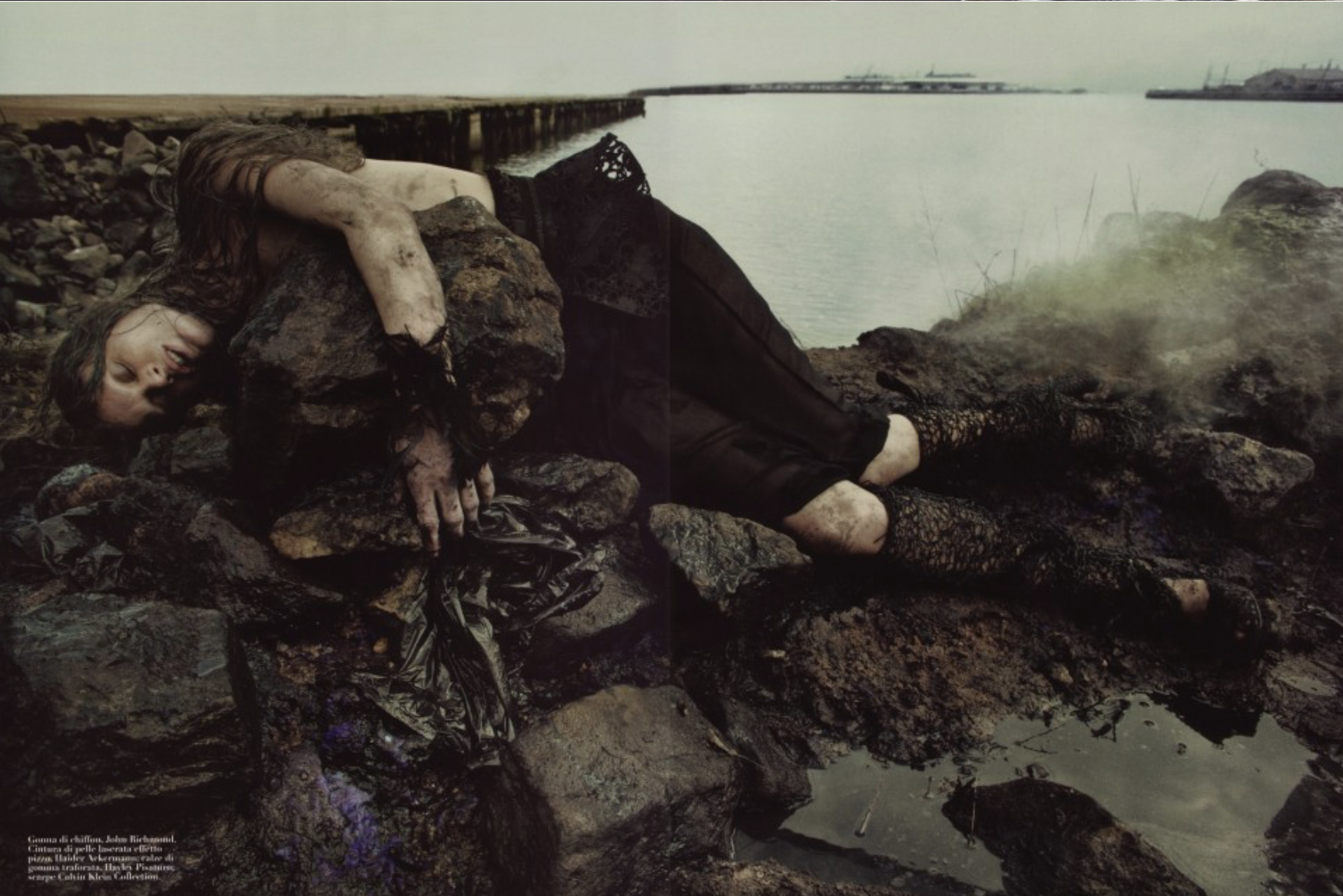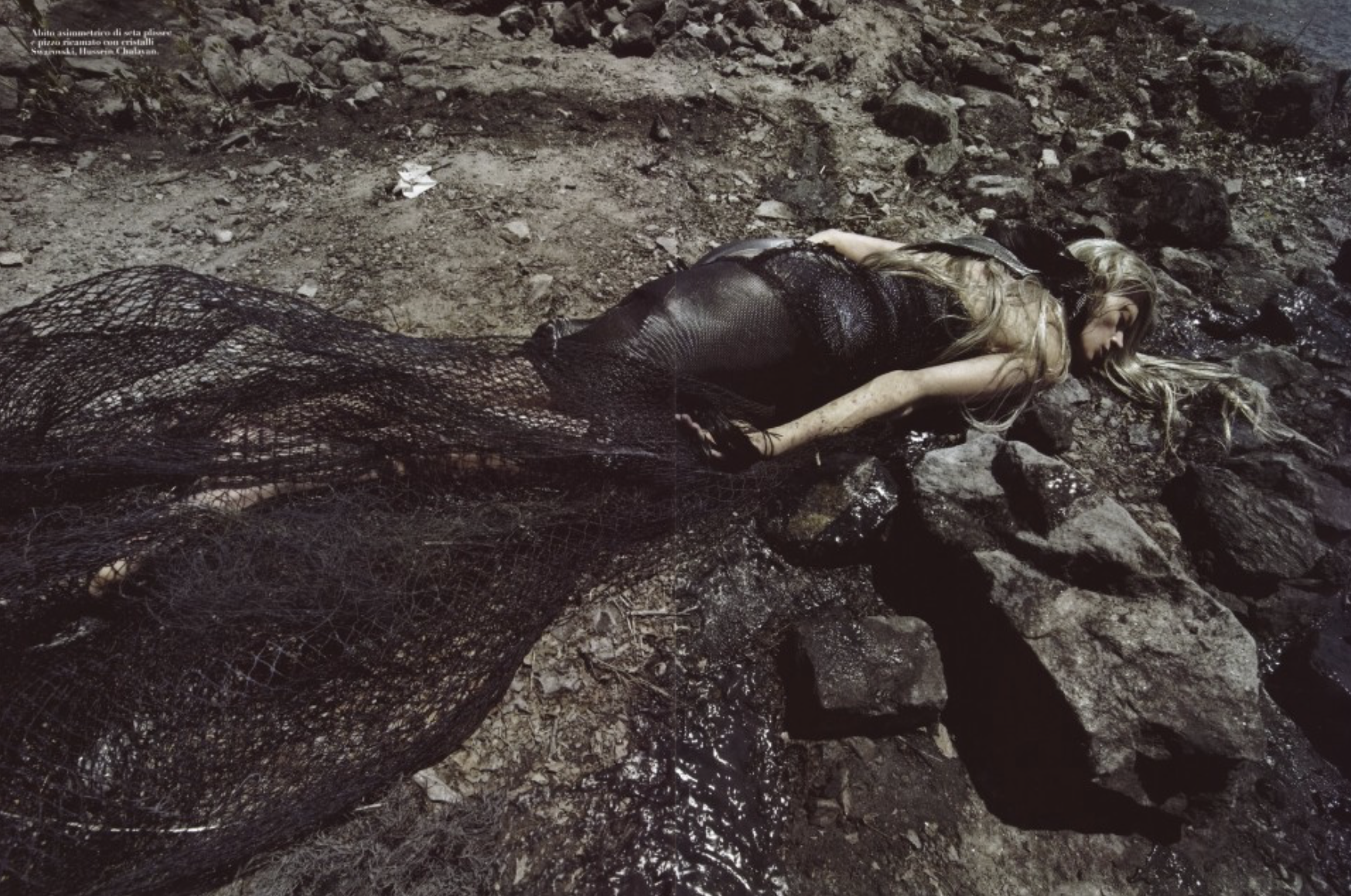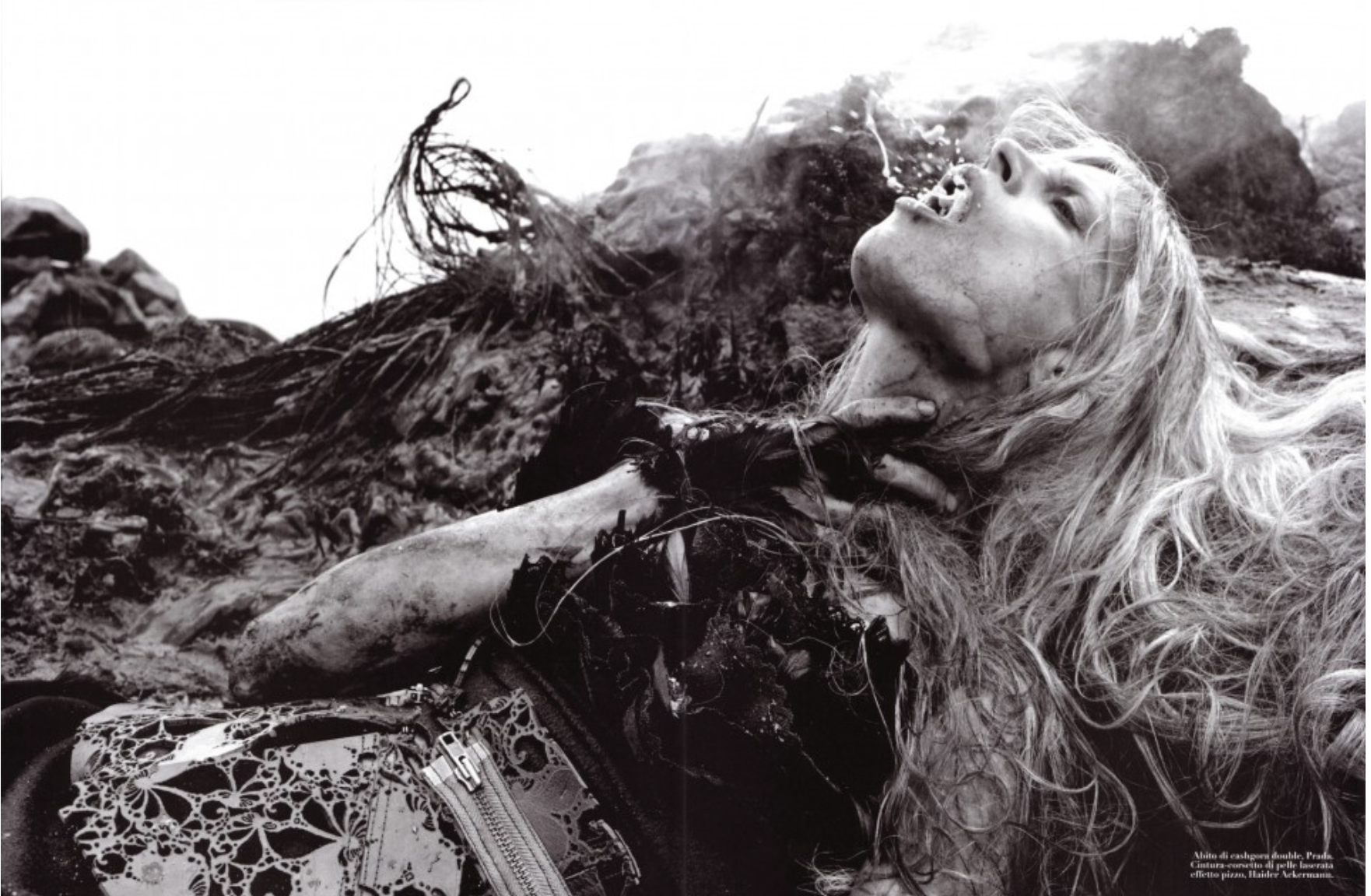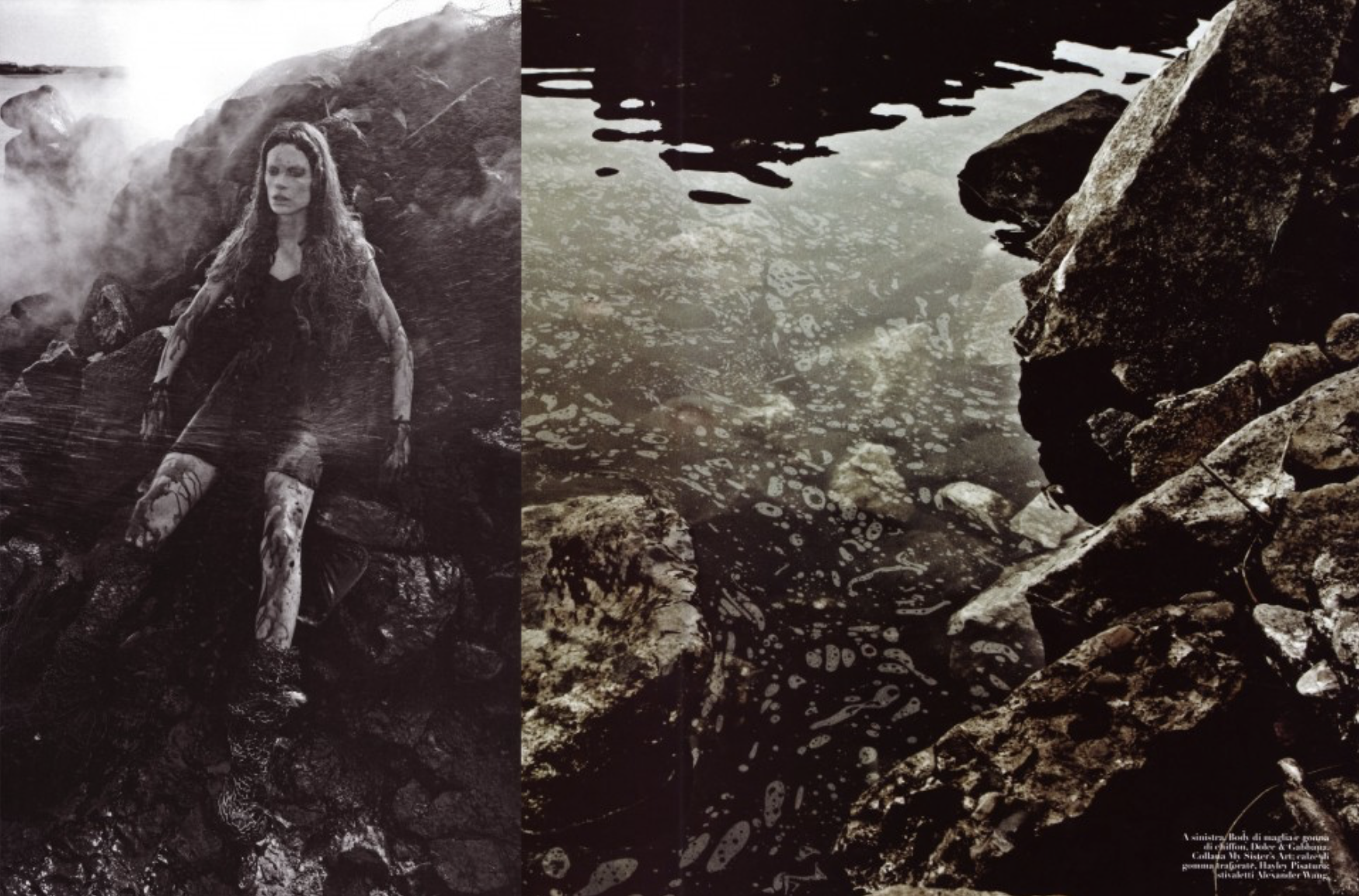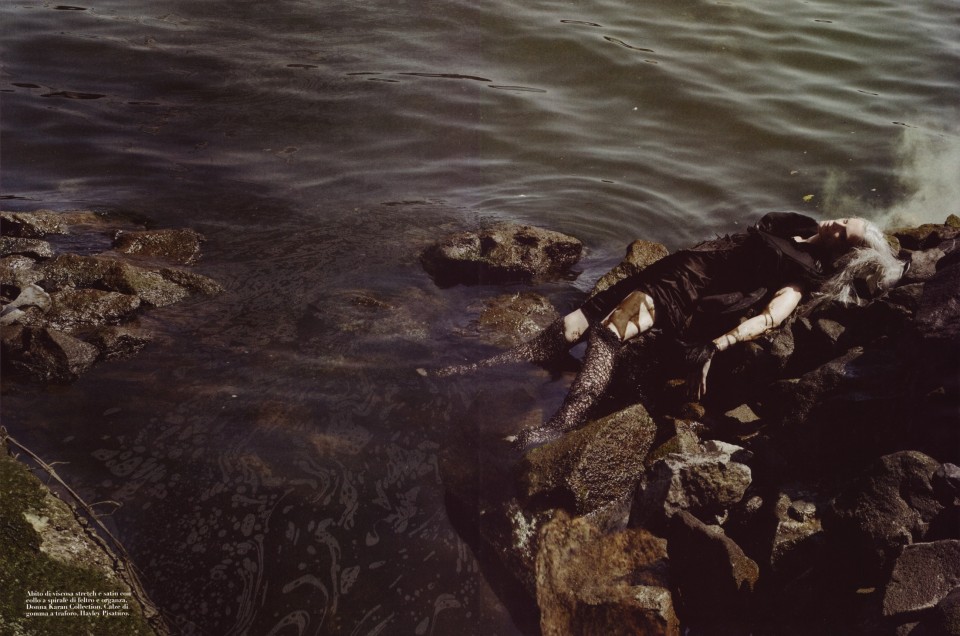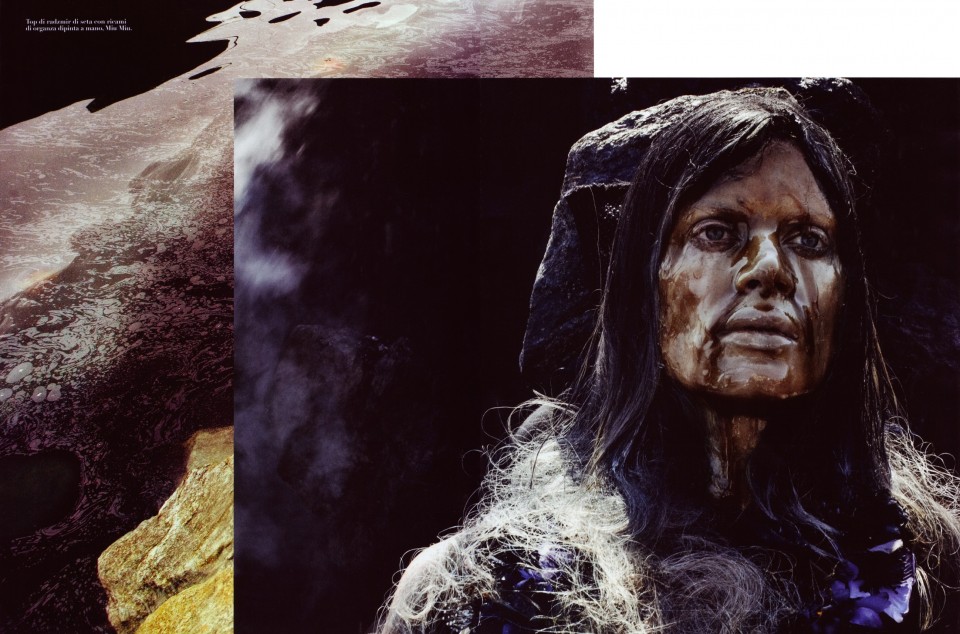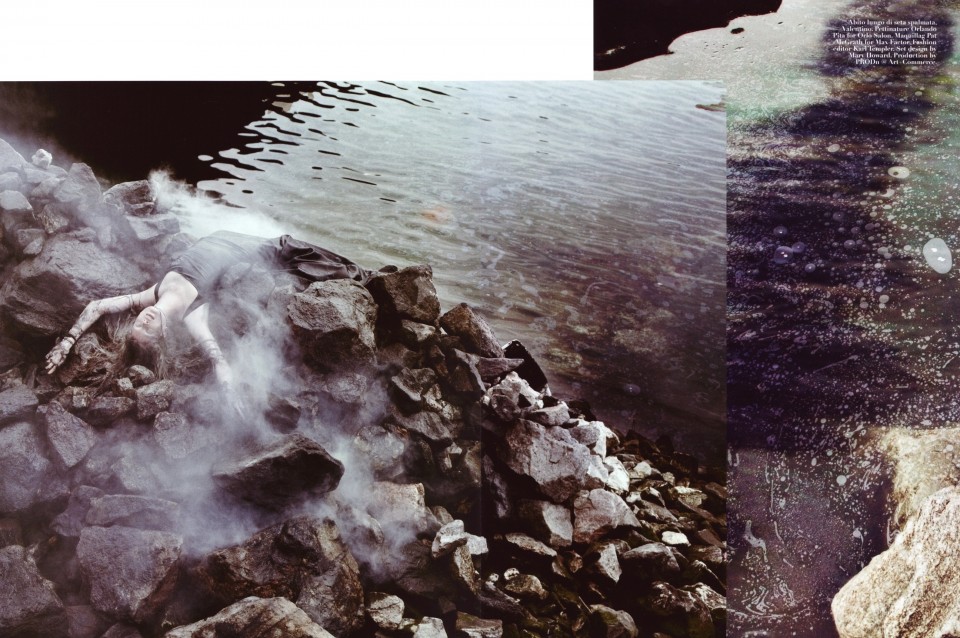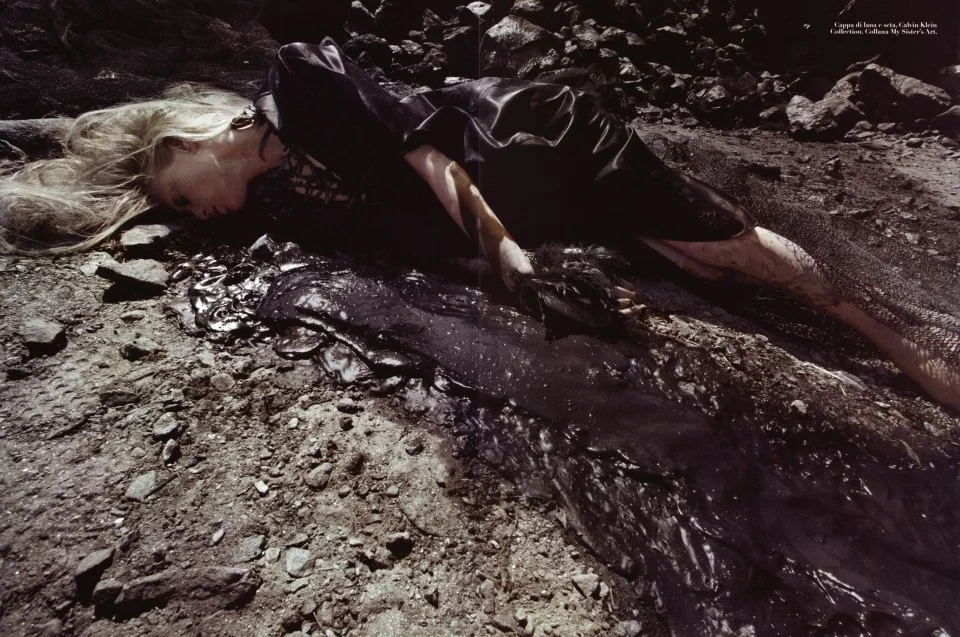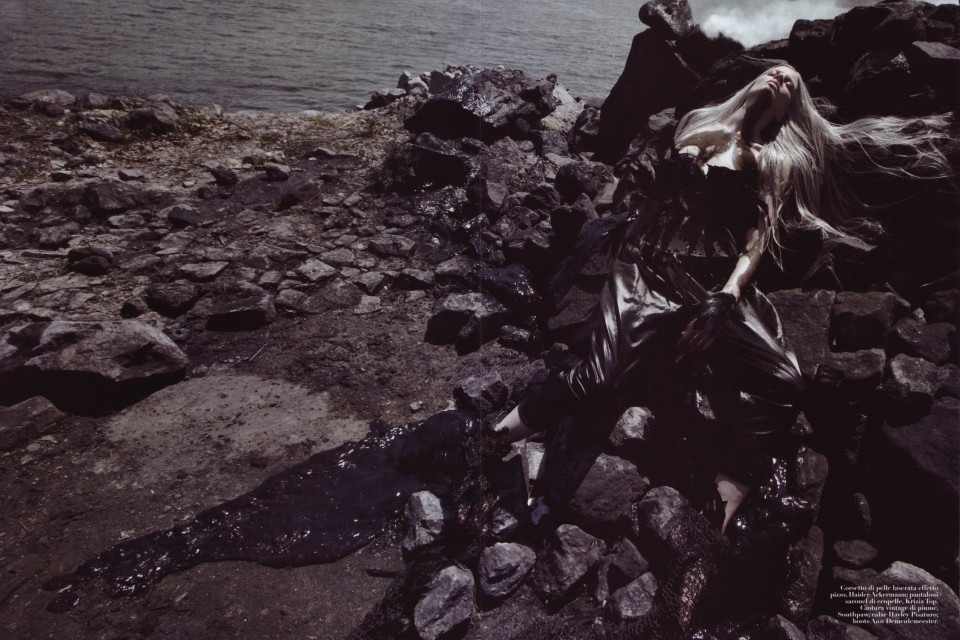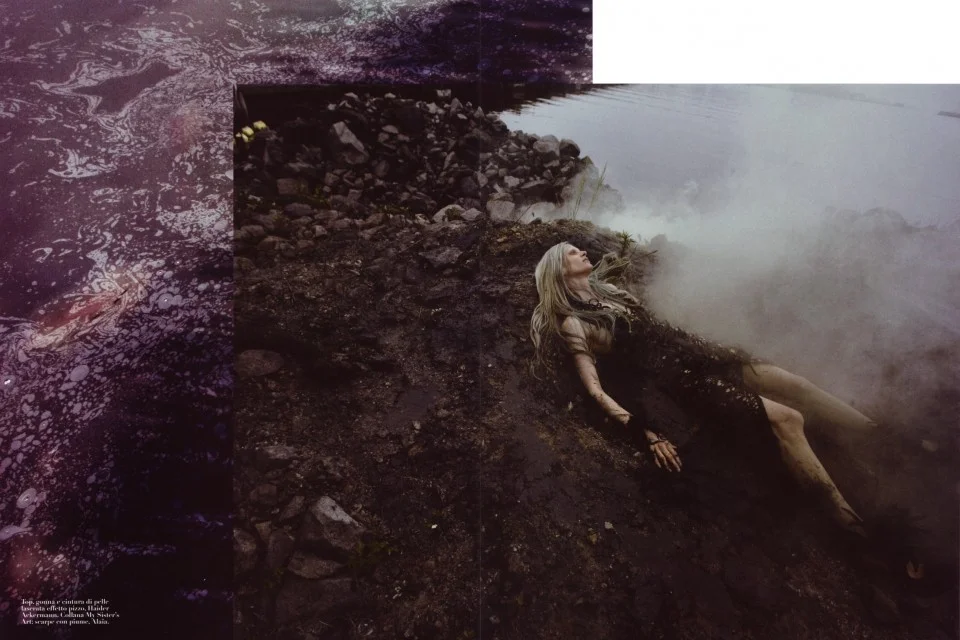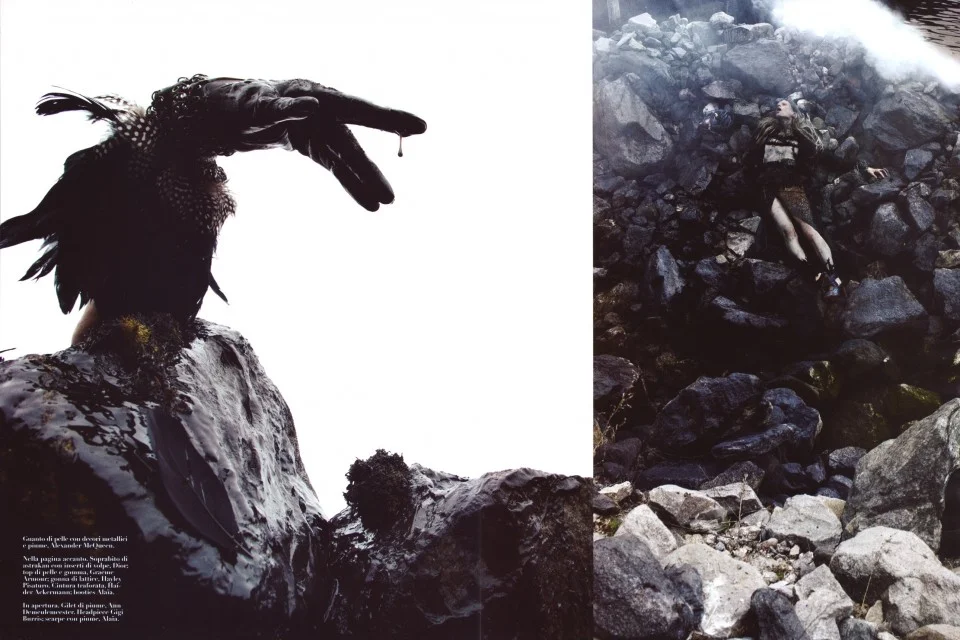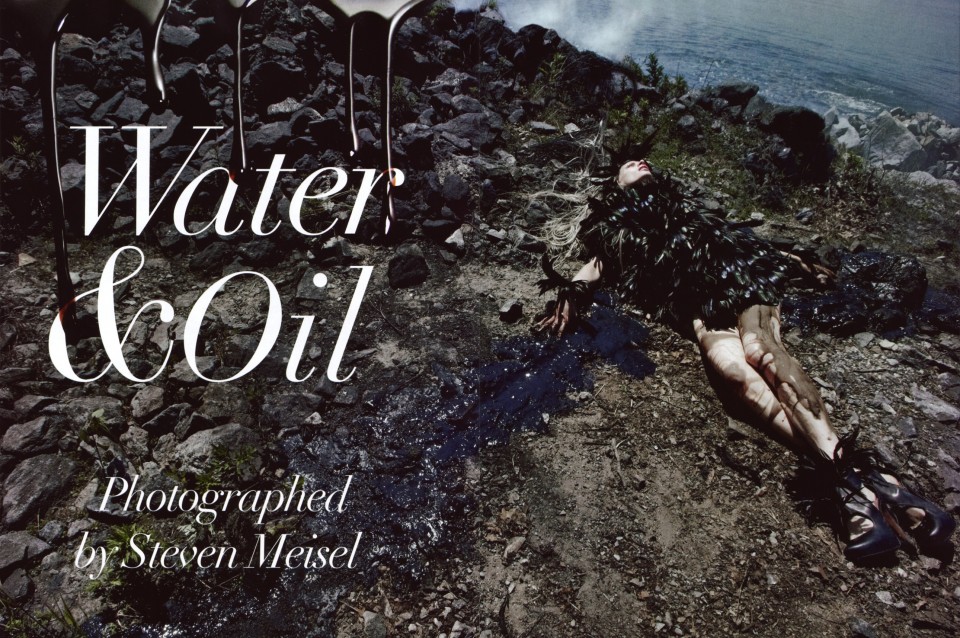'Water & Oil': An Enduring Meisel-Sozzani Vogue Italia 2010 Fashion Statement
/Our dear Franca Sozzani, Editor-in-Chief of Vogue Italia until her passing in 2016, created nonstop the most activist and in-your-face political statements among the Vogues. Not all fashionistas appreciated her activist voice and lamented the renowned editor’s refusal to ‘just stick to fashion’.
Sozzani's infamous Italian Vogue editorial 'Water & Oil', August, 2010 photographed by Steven Meisel is among her most controversial stories of her career. Sozzani was making a political statement about the Spring 2010 BP oil spill in the Gulf of Mexico.
Today, February 2, 2024 is the second time AOC has touched this critically-important story ‘Water & Oil’. The first was on December 22, 2016, when I woke up to learn of Sozzani’s passing. Knowing how important this story was to her, we chose to honor Franca by republishing the editorial featuring Kristen McMenamy in much-expanded image sizes, but with the original commentary.
In moving AOC from Squarespace V5 to V7 in 2015, none of the comments transferred with the original articles. Those arguments were fierce and widely different between the Americans and the Europeans!
Franca Sozzani Would Love Zhong Lin
Vogue Taiwan Zhong Lin Cover Images: 1. Peng Chang in 'Heat Wave' by Zhong Lin for Vogue Taiwan January 2022 and 2. Excessive Consumption in the Spotlight by Zhong Lin for Vogue Taiwan January 2025
In recent years Vogue Taiwan, in particular, has picked up Sozzani’s activist voice on the environment, enlisting the enormously-talented Malaysian photographer Zhong Lin, now living in Taiwan, to produce her first January 2022 story ‘Heat Wave’ focused on themes very consistent with ‘Oil & Water’.
I wrote in-depth about ‘Heat Wave’ and it remains in the Top 5 stories ever on Anne of Carversville. Today lightening struck a second time with the January 2025 issue of Vogue Taiwan featuring a new story by Zhong Lin called ‘Never Enough’.
In ‘Heat Wave’, I compared the fashion story with ‘Oil & Water’ and introduced new research being done on the ‘disgust factor’ and how it impacts political party affiliations. This research is embedded in the rapidly expanding — but very expensive — field of brain mapping as the true answer to research questions.
Simply stated, humans can lie out loud, but the manner in which different parts of the brain activate — or ‘light up’ as I like to say — gives highly-credible answers as to what we’re really thinking, and how we’re responding physiologically.
These three important fashion stories on AOC will become an important focus off our landing page, coupled with a range of expanding ‘shorts’ about where we are at on the road to protecting our Mother Earth. As Trump assumes the presidency, we assume that the US will undergo many changes around environmental regulation. We will track all the important headlines, but I want to dig much more deeply into the historical and religious reasons why America has such different views — or at least Trump’s America has different views — than the Europeans on topics like climate change and protecting the environment.
Anne’s Original Commentary from ‘Oil & Water’
[Written Aug. 7, 2010]: "Italian Vogue’s Kristen McMenamy oil-spill environmental disaster photos have created a firestorm of controversy about the motives of the magazine and whether or not the fashion shoot is in ‘poor taste’.
I’ve read endless comments from presumably American readers, and they are generally negative about the Italian Vogue Sept 2010 BP oil-spill photos.
Comments are that the photos are tasteless, trivialize the events in the gulf to the point of mockery and represent a big-businesses attempt to exploit the tragedy. In the case of Italian Vogue and Kristen McMenamy, the big-business bad guy is Conde Nast, not BP. How incredibly fascinating!
From my perspective, I fail to see how these photos glamorize the BP Gulf oil disaster. They are disturbing, provocative and dreadfully ugly.
What we learn in reading the torrent of comment criticism is a fashion reality long known to me: American fashion has no intellectual or political base. In France, Germany, Italy and Spain, fashion and style sometimes become political, holistic statements about life and consumption.
The Politics of Fashion
Recently, I met with a prominent New York PR woman, talking about Anne of Carversville and my consulting philosophy. Luckily she has global clients and was herself raised in Australia.
“They must love you in France,” she laughed.
This is true, not only do ‘they’ love me in France and Italy, ‘they’ say I’m not American, precisely because I don’t separate fashion and style from environmental, or quality of life issues. “You may have an American passport and work for an American company [Victoria’s Secret], but you are not American,” they said for 10 years. Note that people said the same thing in Asia and in a strange way tended to adopt me as one of ‘their own’, too.
Humans As Animals
There is no beauty in the Italian Vogue editorial photos. Honestly, I can’t imagine that they will inspire one dress sale. I view the photos as a primarily political statement, one tied into environmental issues but also into the fact that as humans, we are animals.
Modern values, which were born in America, put humans above animals and Mother Nature. We forget that humans are technically apes. We exist in this lineup: bonobo, chimpanzee, human, gorilla, orangutan, and gibbon.
If we regarded ourselves as part of Mother Nature’s lineup, rather than masters over it, we might approach our lordship over the environment differently.
It’s helpful to examine the Italian Vogue oil spill photos against the backdrop of the ongoing 2009-2010 Wrangler jeans ‘We Are Animals’ ad campaign in Europe. [Note, we will try to follow up this story and also obtain more visuals.] Can you imagine this campaign being produced in America? No.
Cultural Creatives Advertising
Americans looking at ‘Oil & Water’ could be pleasantly surprised to get a first-hand visual documentation of just how intellectual fashion can be in Europe vs America.
Instead we shred the Italian Vogue visual commentary, taking offense at its lack of political correctness. We could explore what we might learn from the European desire to integrate consumption and brand values messages into a cohesive editorial statement. But that requires an intellectual, thoughtful approach to fashion and our consumption patterns.
No dice, say the Americans.
Simply stated, not since the 60s [which is the birth of Cultural Creative values] has America used fashion and style to make political statements in any significant way.
The American response to Italian Vogue’s Gulf Oil spill, Kristen McMenamy photos is one more example of a schism wider than the Atlantic Ocean that separates Europe and America, when the topic is fashion and politics. Anne
